Let's use Potentially Unwanted Programs – or PUPs – as an example. Chances are you've come across these before, even if you didn't realize that's what they're actually called! Ever found that a new tool bar has suddenly appeared on your computer? Or how about a new tab page which sends you to websites you don't want to visit? If you're nodding and saying 'yes' right now, then you've had a Potentially Unwanted Program installed on your PC.
What are Potentially Unwanted Programs? A PUP is an annoying program which has been downloaded onto your computer, tablet or other device without you giving it permission, or actually really knowing about it at all. So what makes it potentially unwanted instead of totally unwanted? Well, it might be unwanted because you really don't need it; let's say it's offering you the aforementioned tool bar or home page, or perhaps it's presenting itself as an alternative to your anti-virus software. Please note that if you are getting "You are currently using an old operative system and your player might be outdated" pop-ups then your computer is infected with PUP/adware and very likely more than one.
PUPs also ramp up the annoyance factor through their usage of pop-up adverts and other applications that you simply have no interest in. Not fun to deal with when you have a deadline to meet or you're just trying to relax with a spot of online shopping.
Why didn't my anti-virus software stop a PUP from being installed on my PC? Firstly, it's great that you're using an anti-virus – you'd be surprised how many people leave themselves unprotected when they're connected to the Internet. But more importantly, you want to know how and why you still have a Potentially Unwanted Program installed on your machine. The problem is caused by the fact that most anti-virus or anti-malware programs are not able to identify PUPs. So, regardless of you having a dependable anti-virus program running on your machine which hasn't let you down in the past, you are still vulnerable to PUPs.
But why, you're dying to know. What's the problem? The problem is because your anti-virus software doesn't see a Potentially Unwanted Program as a threat. All it is is unwanted and only potentially unwanted at that. Being unwanted doesn't make something malware or a virus. In the majority of cases, a PUP is just an alternative (albeit not usually very good!) tool bar or browser. The fact that it has a use that is legitimate means that potentially there are people who would actually find it useful and keep it installed.
And it is precisely this fact that because a Potentially Unwanted Program falls into this decidedly gray area that your hard working anti-virus software finds it virtually impossible to apprehend and delete it.
To remove "You are currently using an old operative system and your player might be outdated" pop-up from your computer, please follow the steps in the removal guide below. If you have any questions, please leave a comment down below. Good luck and be safe online!
Written by Michael Kaur, http://deletemalware.blogspot.com
"You are currently using an old operative system and your player might be outdated" Removal Guide:
1. First of all, download anti-malware software and run a full system scan. It will detect and remove this infection from your computer. You may then follow the manual removal instructions below to remove the leftover traces of this malware. Hopefully you won't have to do that.
2. Remove "You are currently using an old operative system and your player might be outdated" related programs from your computer using the Add/Remove Programs control panel (Windows XP) or Uninstall a program control panel (Windows 7 and Windows 8).
Go to the Start Menu. Select Control Panel → Add/Remove Programs.
If you are using Windows Vista or Windows 7, select Control Panel → Uninstall a Program.

If you are using Windows 8, simply drag your mouse pointer to the right edge of the screen, select Search from the list and search for "control panel".

Or you can right-click on a bottom left hot corner (formerly known as the Start button) and select Control panel from there.
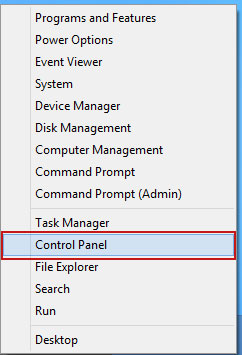
3. When the Add/Remove Programs or the Uninstall a Program screen is displayed, scroll through the list of currently installed programs and remove the following:
- Quiknowledge
- LyricsSay-1
- Websteroids
- BlocckkTheAds
- HD-Plus 3.5
- and any other recently installed application
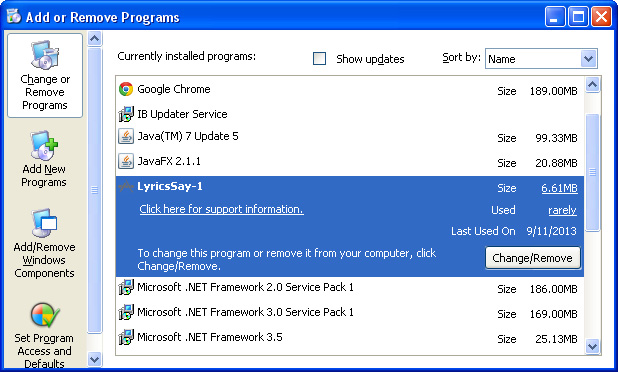
Simply select each application and click Remove. If you are using Windows Vista, Windows 7 or Windows 8, click Uninstall up near the top of that window. When you're done, please close the Control Panel screen.
Remove "You are currently using an old operative system and your player might be outdated" related extensions from Google Chrome:
1. Click on Chrome menu button. Go to Tools → Extensions.
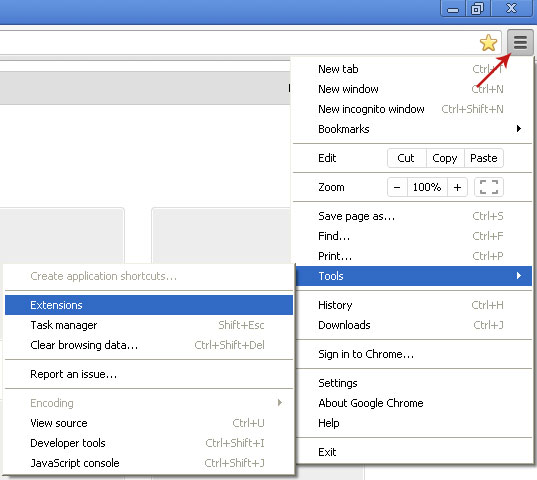
2. Click on the trashcan icon to remove BlocckkTheAds, LyricsSay-1, Websteroids, Quiknowledge, HD-Plus 3.5 and other extensions that you do not recognize.
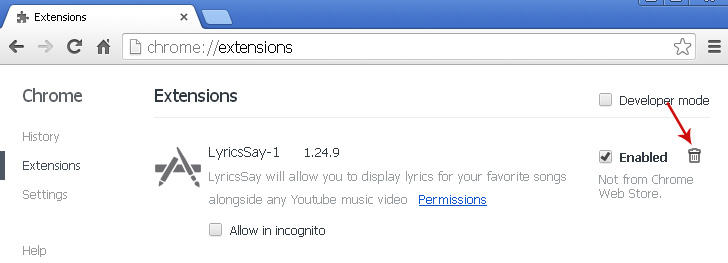
If the removal option is grayed out then read how to remove extensions installed by enterprise policy.

Remove "You are currently using an old operative system and your player might be outdated" related extensions from Mozilla Firefox:
1. Open Mozilla Firefox. Go to Tools → Add-ons.

2. Select Extensions. Click Remove button to remove BlocckkTheAds, LyricsSay-1, Websteroids, Quiknowledge, HD-Plus 3.5 and other extensions that you do not recognize.
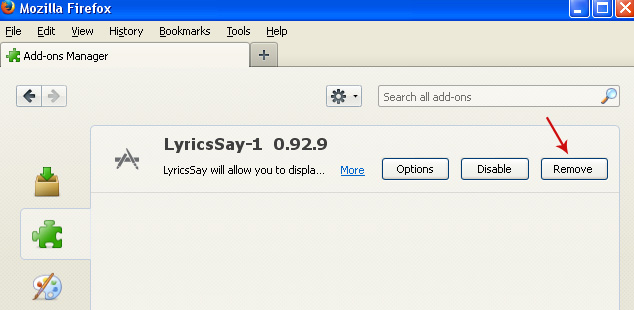
Remove "You are currently using an old operative system and your player might be outdated" related add-ons from Internet Explorer:
1. Open Internet Explorer. Go to Tools → Manage Add-ons. If you have the latest version, simply click on the Settings button.

2. Select Toolbars and Extensions. Click Remove/Disable button to remove the browser add-ons listed above.


Không có nhận xét nào:
Đăng nhận xét